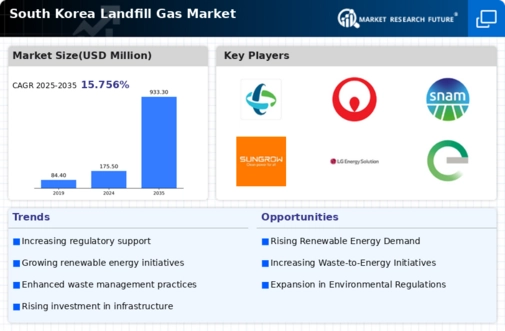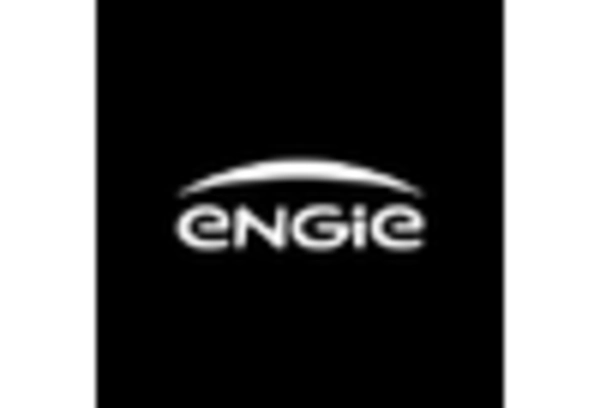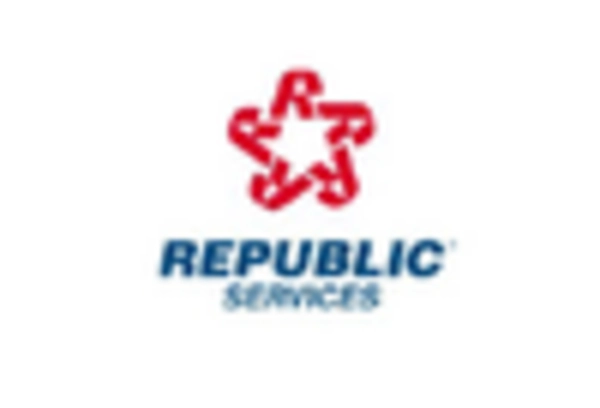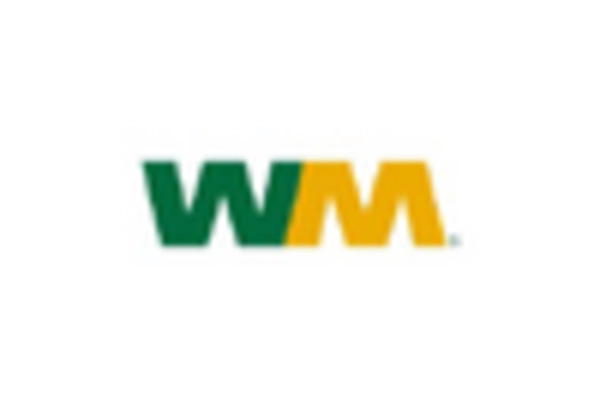Increased Waste Generation
The rising population and urbanization in South Korea contribute to increased waste generation, which directly impacts the landfill gas market. As more waste is produced, the potential for capturing methane and other gases from landfills grows. In 2023, South Korea reported a waste generation rate of approximately 1.5 kg per capita per day, indicating a significant volume of organic waste that can be converted into energy. This trend suggests that the landfill gas market may experience growth as municipalities and private companies seek to harness this resource for energy production and environmental benefits.
Integration with Waste-to-Energy Systems
The integration of landfill gas systems with waste-to-energy (WtE) facilities presents a promising opportunity for the landfill gas market in South Korea. By combining landfill gas recovery with WtE technologies, municipalities can maximize energy production while minimizing environmental impact. This synergy not only enhances the overall efficiency of waste management but also contributes to energy security. In 2023, approximately 30% of landfill gas produced was utilized in WtE plants, suggesting a growing trend that may continue to evolve as more facilities adopt this integrated approach.
Technological Innovations in Gas Capture
Advancements in technology related to gas capture and utilization are likely to enhance the efficiency of landfill gas extraction in South Korea. Innovations such as improved gas collection systems and enhanced biogas processing techniques may lead to higher yields of methane from landfills. The landfill gas market could see a transformation as these technologies become more widely adopted. In 2023, several pilot projects demonstrated a 20% increase in gas recovery rates, indicating that ongoing research and development may further optimize the potential of landfill gas as a renewable energy source.
Government Incentives for Renewable Energy
The South Korean government has implemented various incentives to promote renewable energy sources, including landfill gas. These incentives may include tax breaks, subsidies, and grants aimed at encouraging investment in landfill gas projects. In 2023, the government allocated approximately $500 million to support renewable energy initiatives, which could significantly bolster the landfill gas market. Such financial support not only enhances the feasibility of landfill gas projects but also aligns with national goals for reducing greenhouse gas emissions and transitioning to a more sustainable energy landscape.
Public Awareness and Environmental Concerns
Growing public awareness regarding environmental issues has led to increased scrutiny of waste management practices in South Korea. Citizens are becoming more concerned about the environmental impact of landfills, which has prompted local governments to explore landfill gas as a viable solution. The landfill gas market stands to benefit from this shift in public sentiment, as communities advocate for cleaner energy alternatives. Surveys indicate that over 70% of South Koreans support initiatives that promote renewable energy, suggesting a favorable environment for the expansion of landfill gas projects.
















